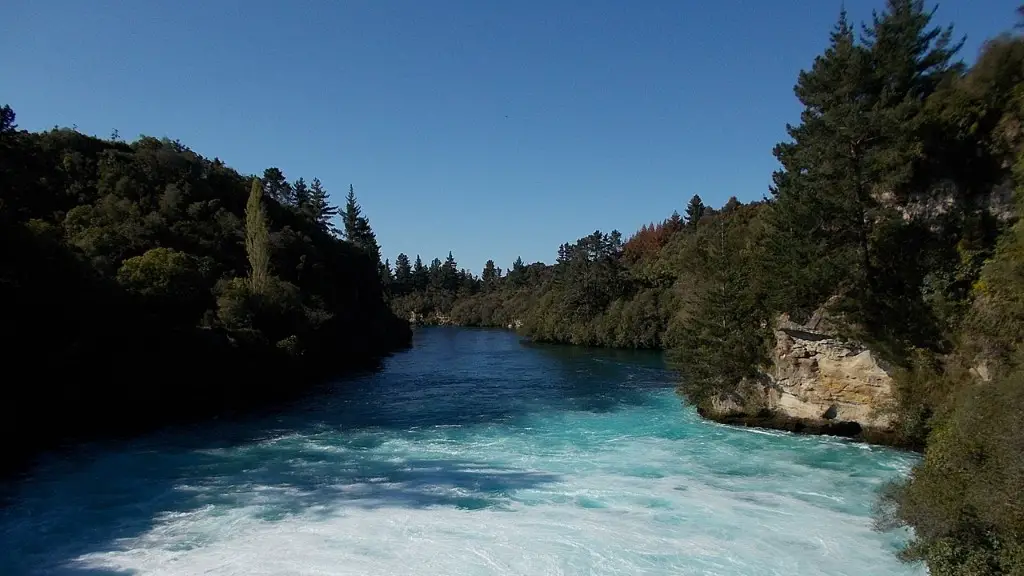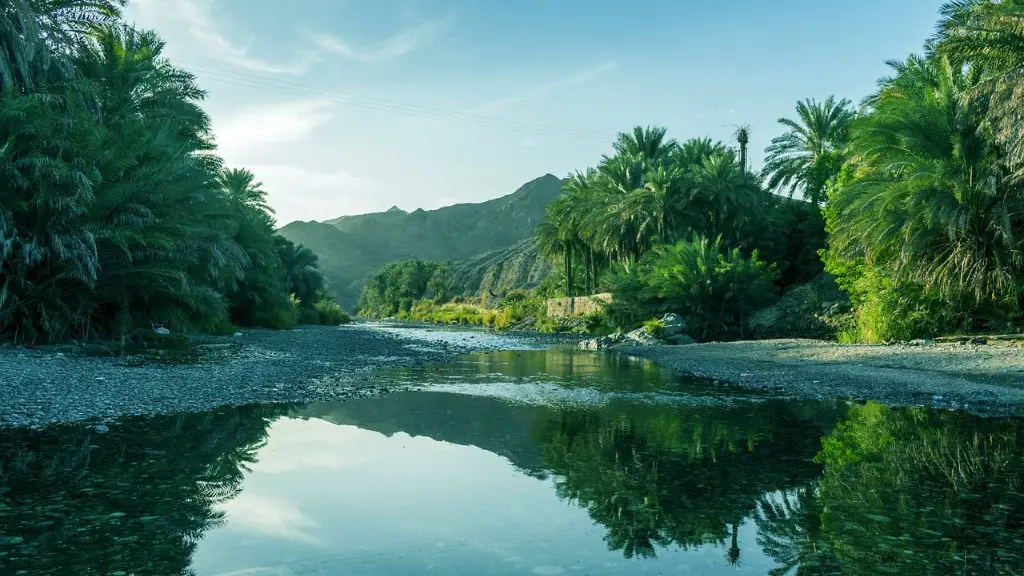How Polluted is the Mississippi River
Many people utilize the Mississippi River for recreation and livelihood purposes, however its water has gotten really polluted. It has been topic to various sources of human pollution, farming activities, and other sources. In this article, we will attempt to explain the various sources that have polluted the Mississippi River, their respective impacts, and discuss what the authorities are doing about it.
The Mississippi River is the largest river by volume within the United States. It stretches from Minnesota to Louisiana and is a crucial source of water for millions of people as it connects as many as 31 countries in the US. Unfortunately, the river is also a major target of pollution, and its waters are so contaminated that it cannot even be used by many of the communities it passes through.
The main source of pollution in the Mississippi River is agricultural runoff. This runoff contains agricultural chemicals such as fertilizers, pesticides, and herbicides, which can be particularly harmful to the environment. It also contains sediment, which can disrupt the natural flow of the river by clogging up its channels and reducing the amount of oxygen in the water. This can have a detrimental effect on the local wildlife, as well as polluting the water and making it unsafe for humans.
Farming activities are not the only source of pollution in the Mississippi River. Industrial activities such as mining and factory operations also contribute to the river’s contamination. These industrial activities produce large amounts of hazardous waste, which can end up in the river through runoff or illegal dumping. Industrial waste is particularly dangerous, as it can contain toxins that can be very harmful to humans and wildlife alike.
The effects of this pollution on the Mississippi River are significant. It has caused decreases in fish populations, as well as the death or displacement of the wildlife that depends on the river for its survival. Contaminated water can even affect human health if it is consumed or used in day-to-day activities. The pollution has also caused severe economic effects, as many communities are unable to use the river for their usual livelihood.
Restoration Efforts
In order reduce the amount of pollution in the river, the government is making an effort to restore the river to its previously pristine condition. One of the main methods of restoration is improving wastewater treatment and reducing pollution from agricultural and industrial activities. This includes stricter regulations on industrial and agricultural pollution, as well as incentives for farmers to reduce their environmental impact.
In addition to government initiatives, there are also many nonprofit organizations and private individuals who are working to clean up the Mississippi River. These organizations conduct studies and research, host clean-up initiatives, and provide educational resources to help raise awareness of the river’s plight.
As of now, the Mississippi River is still polluted and its future remains uncertain. However, with continued effort from all stakeholders, it can be restored to its previous condition and protected from further damage.
Economic Challenges
The pollution of the Mississippi River has not only had an environmental impact, but an economic one as well. Many businesses that rely on the river have been adversely affected by the pollution, leading to job losses and reduced economic activity.
For example, fishing communities have seen a decrease in catches as a result of the decreased fish population. Tourist activities along the river have also been curtailed due to safety concerns arising from the pollution. In addition, businesses that rely on the river for transportation have experienced costs due to delays.
The economic impact of the pollution has been felt not only along the river, but across the country. Many industries, such as shipping and farming, rely on the river and have been affected by the pollution. As a result, businesses have had to look for alternate solutions and this has resulted in increased costs and decreased profits.
The economic impact of the Mississippi River pollution has been felt in other ways as well. For example, states along the river have had to pay for expensive clean-up projects, which have diverted funds away from other important projects. In addition, states have had to invest in infrastructure to ensure that their water sources remain safe, further increasing costs.
Political Dimensions
Pollution of the Mississippi River has also had a political dimension. Disputes over the river have arisen between the states that it passes through, as well as between the federal government and these states. This has resulted in an ongoing debate about who should be responsible for the cleanup of the river, with some states believing that the federal government should take a more active role.
In addition, there have been disagreements over who should be responsible for the cost of the cleanup. While some states have put forward legislation to pay for the repairs, other states have argued that the burden should be shared by all states. This has resulted in a stalemate, with no agreement reached on who should pay for the cleanup.
The disputes over the Mississippi River also manifest in other ways. For example, some states have attempted to pass legislation to restrict the pollution of the river, while other states have argued that they should be allowed to use the river as they see fit. This has led to a battle between states over who should have control of the river, leading to further disputes and delays.
Public Health Effects
As a result of the pollution in the Mississippi River, there have been numerous public health effects. Polluted water can contain toxins and bacteria that are harmful to humans, leading to the spread of diseases such as dysentery and cholera. In addition, polluted water can lead to skin irritation and other health problems.
The pollution of the Mississippi River has also had an effect on the local wildlife. Many of the animals in the river are affected by the pollutants, leading to decreased populations and sometimes even death. This has had an impact on the entire ecosystem, as the river is a food source for many of these animals.
The public health effects of the Mississippi River pollution have also been felt in other ways. For example, the pollution has reduced the aesthetic value of the river, leading to fewer people visiting the area. This has resulted in a decrease in tourist revenue for the states along the river, further affecting economic activity.
The public health impact of the Mississippi River pollution has been felt for many years and is still a major concern today. It is important that the stakeholders take steps to clean up the river and reduce the amount of pollution entering it so that it can be returned to its pristine condition.
Current Reports
Recent reports suggest that the Mississippi River is in better condition than it was a few years ago. However, there is still significant pollution in the river that is impacting the local wildlife and human health. The US Environmental Protection Agency (EPA) has estimated that the river will not reach acceptable water quality standards until 2030. This means that the efforts to reduce the pollution in the river must be doubled in order for it to meet this target.
The EPA has also taken steps to reduce the amount of pollution in the river. The agency has implemented stricter regulations on industrial and agricultural pollution, as well as water-related activities. In addition, the EPA has also established monitoring programs to observe changes in water quality and provide regular updates on the pollution levels.
The future of the Mississippi River is still uncertain, but with the continued effort from all stakeholders, it is possible to restore the river to its previously pristine condition and protect it from further damage. This can only be achieved if we all work together to reduce the amount of pollution that is entering the river.
Social Awareness
The pollution of the Mississippi River has also impacted people socially. For example, many people are now aware of the consequences of the pollution, including the health risks and environmental damage, and this has led many individuals to become more active in trying to protect the river.
In addition, the pollution has led to many communities along the river to come together to fight for change. This includes organizing clean-up initiatives, lobbying the government, and pressuring companies to reduce their pollution. These activities have raised awareness of the issue and have had a positive impact on the health of the river.
The pollution of the Mississippi River has also had an effect on people’s attitude towards the river. Many people now view it as a source of danger, rather than a source of opportunity and recreation. This has been a source of concern for those who live along the river, as well as for those who depend on it for their livelihood.
Despite the pollution of the river, it is still an important resource for many communities, both economically and socially. It is essential that people continue to demand action from their governments and corporate entities in order to protect the river and reduce the pollution.
Conclusion
The Mississippi River is a vital resource for many communities and a source of recreation and livelihood. Unfortunately, it has become polluted over the years, leading to a decrease in wildlife and a decrease in water quality. The government and other stakeholders have taken steps to reduce the amount of pollution entering the river, however, the river still remains polluted. There is still a need for further action in order to restore the river to its previous pristine condition.





